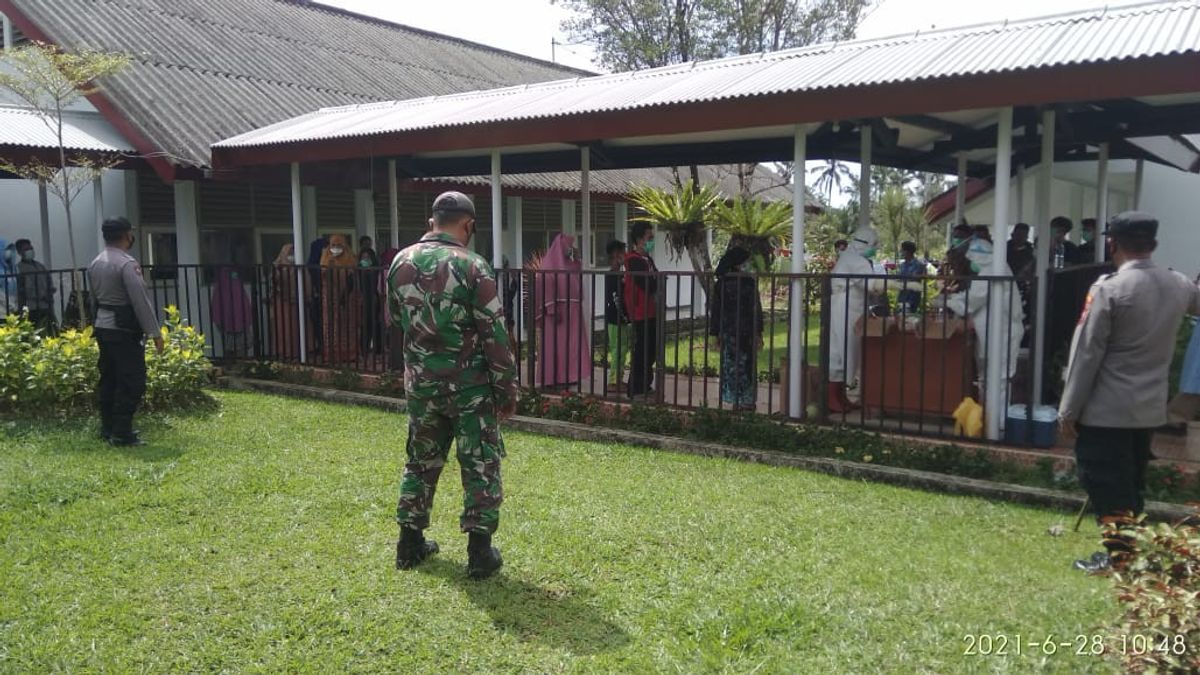BANYUWANGI - A total of 61 Wali Songo pilgrims who were positive for COVID-19 were quarantined at the Slippery Training Center, Banyuwangi, East Java. Dozens of children were also exposed to COVID-19 from this cluster.
The head of the Licin Health Center, Dr. Nira Istadewi, said there were 13 children and 1 toddler who were exposed to the corona virus. They are confirmed positive for COVID-19 without symptoms or without complaints of illness.
"All are healthy, there are no complaints of illness at all. If they are negative for PCR, self-isolate at home, if they are positive, they will stay at the training center," he said when contacted on Monday, June 28.
Nira said that they are currently undergoing PCR swab tests. But the results are not out yet. If they test positive, they will still be quarantined at the Slippery Education and Training Center.
However, if they are negative, they will be asked to quarantine at their respective homes. "The PCR results haven't come out yet and are still being sent to Labkesda," he said.
The Slippery Education and Training Center, said Nira, currently accommodates 65 residents. Two other residents, namely Indonesian migrant workers (PMI) who tested positive for COVID-19 from the results of the PCR test.
It was previously reported that 61 people out of a total of 98 residents from Licin District, Banyuwangi, East Java, tested positive for COVID-19, after performing the Wali Songo pilgrimage. The group went on a pilgrimage using two buses.
"Of the 98 tested, 61 were positive. They were immediately quarantined in the Slippery Training building," said Banyuwangi COVID-19 Task Force Spokesperson, Widji Lestariono when contacted.
Widji said the transmission was suspected to have occurred in the cities visited. Then on the bus, pilgrims may find it difficult to keep their distance and wear masks properly.
"There are two buses, they are definitely on the bus not keeping their distance and wearing masks, then getting off in cities (which are visited) and interacting with other people," he said.
The English, Chinese, Japanese, Arabic, and French versions are automatically generated by the AI. So there may still be inaccuracies in translating, please always see Indonesian as our main language. (system supported by DigitalSiber.id)








